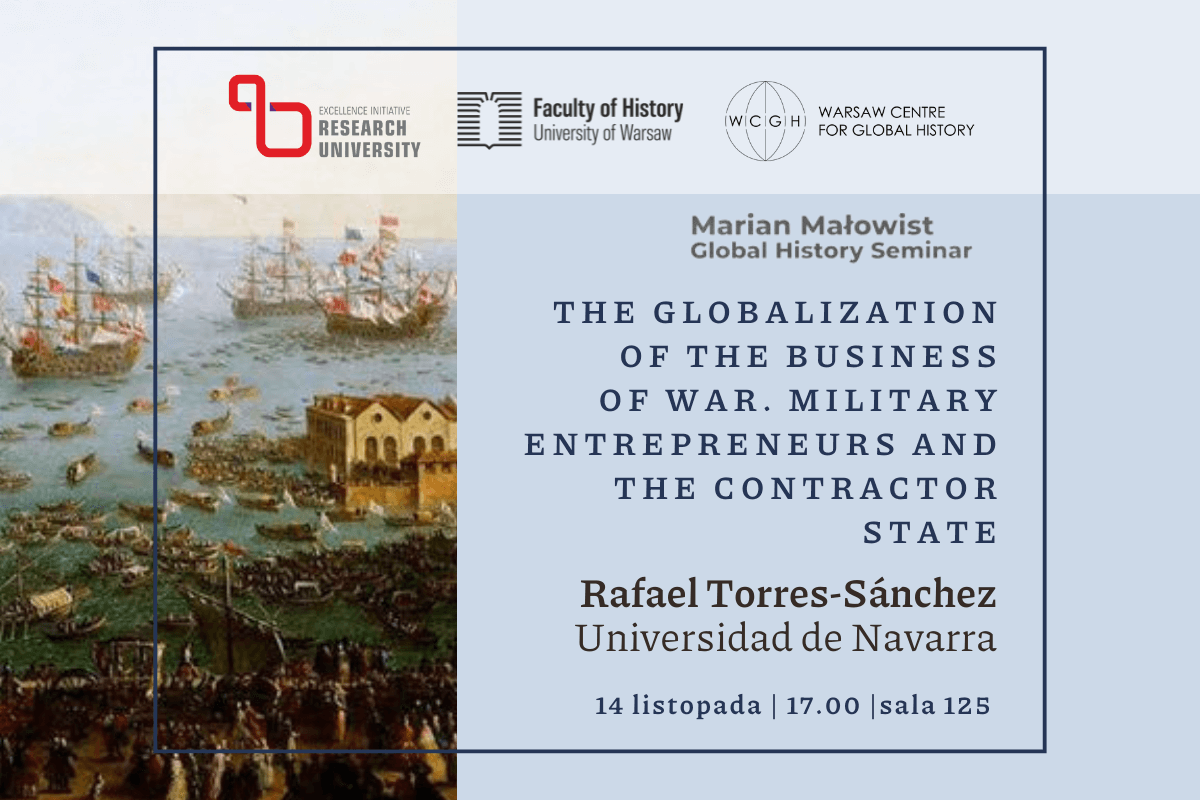Seminarium Global History im. Mariana Małowista

Zapraszamy na wykład w ramach seminarium Global History im. Mariana Małowista pt. “The Globalization of the Business of War. Military Entrepreneurs and the Contractor State“.
Wykład wygłosi prof. Rafael Torres-Sánchez (Universidad de Navarra). Zajmuje się badaniem relacji między budową państwa a działaniami wojennymi w Hiszpanii i Europie w długim XVIII wieku.
Od 2004 r. prowadzi międzynarodową grupę badawczą „Red Imperial. Contractor State Group”, która łączy wysiłki badawcze 17 krajowych i międzynarodowych uniwersytetów: https://www.unav.edu/web/contractor-state-group
Wydarzenie odbędzie się w dniu 14 listopada, o godz. 17.00, w sali 125. Serdecznie zapraszamy.
Link do transmisji: meet.google.com/kpu-ehzc-eor
The Globalization of the Business of War. Military Entrepreneurs and the Contractor State:
Historiography on the role of war in national development during the Early Modern period has undergone an exciting evolution in recent years. Initially, war was viewed as a driver of institutional change. Sustaining the military effort led to administrative transformation in almost every country, with more coercive treasuries and more extensive and extractive taxation. The emphasis on taxation led, in a second phase, to the view that the key to unequal growth among nations lay in the level of development reached by what were then called “fiscal-military states.” However, the realization that all states evolved into “fiscal-military states” did not solve the problem. Therefore, the relationship between war and development was reexamined. In a third phase, the analysis shifted to the demand generated by war, in what came to be called the “contractor state,” that is, how states redistributed accumulated resources and incomes through the demand for military supplies. Currently, this approach is being revised due to evidence that significant evolution occurred in that redistribution, as entrepreneurs were the ones who effectively channeled the demand to the entire productive fabric and managed its distribution. The thesis presented here is that war became a growth lever in those countries where entrepreneurs and society as a whole participated and collaborated in the war effort. In the end, national differences could also be explained by this societal participation.